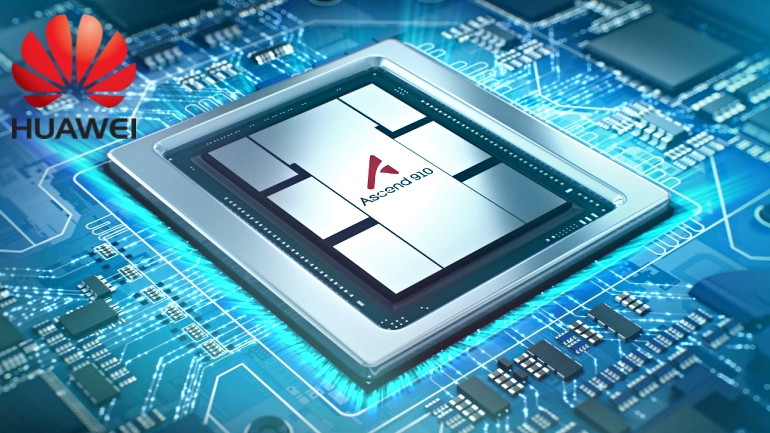Amdocs, a leading software and service provider to communications and media companies, has bought an Ireland based Digital BSS company, Openet, that provides charging, policy and data solutions. Two years after their heated legal dispute, the telecom software company Amdocs has ended the litigation by finally licensing a number of Openet patents. As the telecommunications sector has been trending towards digital transformation for some time now, the merger between the two companies will provide exceptional and wide-ranging opportunities for both enterprises. In recent years, the Ireland-based company, Openet, developed modern cloud-based software and 5G products that are recognised around the world for their innovation. The amalgamation of the two companies is said to offer Amdocs‘s customers advances in 5G technologies, cloud, edge computing and Internet of Things (IoT), as well as an elevated customer experience, policy and data management expertise. Shuky Sheffer, CEO of Amdocs Management, commented:…
Ireland’s GoMo goes for more as it hits 200,000 customers Virtual network operator GoMo, the budget mobile brand of Irish telco Eir, has reached 200,000 customers, since launching only eight months ago. The company exists entirely as a digital brand, requiring customers to sign up online to be mailed a SIM card. This “digital-first” approach even extends to customer service, which is available only through online chat, without accessible call centers. GoMo uses Eir’s network and offers 99 percent population coverage and over 97 percent 4G coverage. Since its launch, GoMo has gradually increased its customer base, with figures from the Irish regulator suggesting that the majority are migrating from rivals Three and Vodafone. Read more at https://tinyurl.com/y7uwytwt JSonar raises $50 million for AI-powered database security products Database security startup jSonar has secured USD 50 million, which it plans to put toward R&D and go-to-market efforts. The company said that its AI-powered solutions help users…
Verizon buys Zoom rival BlueJeans for less than $500 million Verizon Business has announced a deal to purchase enterprise-grade video conferencing platform BlueJeans, thereby expanding Verizon’s unified communications portfolio and improving its service for business customers. This acquisition shows that the company is also trying to capitalize on the current trend of remote employees making extensive use of online services such as Zoom, Slack and Microsoft during the pandemic. BlueJeans has more than 15,000 customers, including Facebook, IBM-owned Red Hat, ADP, Zillow and LinkedIn. The deal is worth USD 500 million and is expected to close in the second quarter of 2020. Read more at https://tinyurl.com/yd9qtfhg Apple’s new iPhone SE is surprisingly powerful for $399 Apple is launching iPhone SE 2020, the second generation of its cheapest smartphone in the iPhone lineup, priced at just USD 399. The iPhone SE runs on Apple’s latest A13 Bionic chip that enables great battery…
Hailo raises $60 million to accelerate the launch of its AI edge chip Israeli startup Hailo has raised further USD 60 million in series B funding for artificial intelligence (AI) chips, bringing its total financing to date to USD 88 million. This round, led by existing investors, was joined by strategic investors including ABB Technology Ventures, NEC Corporation, and London-based Latitude Ventures. Hailo said the new funding will help to roll out its Hailo-8 Deep Learning chip and to reach new markets and industries worldwide. The Hailo-8 could give edge devices far more processing power than before, allowing them to perform AI tasks without having to connect to the cloud. The company was founded in 2017, and its technology is designed for the automotive market, smart cameras, smartphones, drones and AR/VR platforms. Read more at https://tinyurl.com/tbwyjnb Ericsson starts manufacturing of 5G base station in Texas Sweden’s Ericsson, one of the…
British officials recommend role for China’s Huawei in 5G network UK officials have proposed allowing Chinese tech giant Huawei to play a limited role in the UK’s future 5G network, resisting calls from the US for a complete ban over fears of Chinese spying. Huawei will be kept out of the sensitive, data-heavy “core” parts of 5G infrastructure, but will be allowed to deploy its equipment in other parts of the network, according to sources speaking to Reuters. This recommendation comes ahead of a meeting of Britain’s National Security Council next week to decide how to deploy Huawei equipment. In addition, this proposal would satisfy Britain’s two largest telecoms operators, BT and Vodafone, which already use Huawei equipment and are against a total ban. Read more at: https://tinyurl.com/szmovzy CityFibre buys FibreNation from debt-laden TalkTalk for £200 million Britain’s TalkTalk Telecom Group has agreed to sell its FibreNation full-fibre network business…
Six global carriers form a group for MEC, 5G interoperability Verizon, Vodafone, America Movil, KT Corporation, Rogers Communications, and Telstra have joined forces to form the first-of-its-kind cooperation, the 5G Future Forum. The world’s leading telecoms and technology service providers will work together to develop interoperable 5G specifications and mobile edge computing across key geographic regions, including the Americas, Asia-Pacific and Europe. According to the statement from the carriers, they will “develop public and private marketplaces to enhance developer and customer access to 5G, and will share global best practices in technology deployment.” Read more at: https://tinyurl.com/u3vdooh Google acquires no-code app development platform AppSheet Google has announced the acquisition of AppSheet, a no-code enterprise app development platform that allows developers without extensive programming knowledge to collect rich data, fill up apps with AI, or automatically move data. This works by extracting data from a spreadsheet, database or form, and using the…
Apple now owns Intel’s mobile modem business Intel, a leader in the semiconductor industry, has completed the sale of the majority of its smartphone modem business to Apple. The company said this transaction enables it to focus on developing 5G network technology while maintaining the ability to create modems for non-smartphone applications, such as PCs, Internet of Things (IoT) devices and autonomous vehicles. Apple now uses Qualcomm for 4G LTE and 5G modems for iPhones. With this acquisition, Apple is planning to develop its own modems for smartphones in 2021. Read more at: https://tinyurl.com/rqmu724 Orange unveils new five-year grand plan Orange, a French multinational telecommunications corporation, has introduced “Engage 2025”, its new strategy that follows on from the Essentials 2020 plan launched in 2015. The corporation has revealed its goals for the coming years, emphasizing that its business model will be guided by social and environmental responsibility. Considering the operator’s business…
Telefonica launches Tech and Infra units amid Latam spin-off Spain’s telecom giant Telefonica has announced a major organisational restructuring after a meeting of its board of directors. The company’s chairman and CEO Jose Maria Alvarez-Pallete has introduced a new bold strategy to spin off company assets and prepare for industry 4.0. With its 5-point plan, Telefonica aims to generate more than EUR 2 billion a year in additional revenues from 2022, by prioritising its four key markets of Spain, Brazil, the UK and Germany and carrying out an “operational spin-off” of its Latin American business. The company will also set up a subsidiary for its cloud, cybersecurity and IoT businesses called Telefonica Tech and another for its infrastructure assets, Telefonica Infra. Read more at: https://tinyurl.com/wjkobwc AT&T and Microsoft launch edge computing network Microsoft and AT&T have integrated 5G with Azure to launch their new Network Edge Compute (NEC) service for…
SES Networks, a provider of global connectivity and managed data services through the only multi-orbit satellite-enabled network and wide-ranging infrastructure on the ground, has announced that it will deliver dedicated, private network connectivity from any vessel, airplane, enterprise, energy or government site in the world to Microsoft Azure using its satellite systems. According to the announcement, SES is able to provide connectivity services across its global fleet of 50 Geostationary Earth Orbit (GEO) and 20 Medium Earth Orbit (MEO) satellites. The company’s 20 O3b MEO satellites are able to deliver MEF-certified data connectivity with low latency via Azure’s global gateway network and earth-bound network infrastructure, resulting in services that are suitable for edge computing. As the first Microsoft Azure ExpressRoute services partner with a cloud-scale satellite network, SES Networks will offer Azure customers the ability to leverage their satellite-enabled managed services to connect locations and sites in remote and…
The Chinese telecommunications giant Huawei has unveiled their brand-new Artificial Intelligence (AI) chipset Ascend 910 at its Shenzhen headquarters, together with the accompanying AI computing framework, MindSpore. The company claims this chip to be the world’s fastest AI processor ever with the greatest computing power available on a single chip, and optimized for AI applications. “We have been making steady progress since we announced our AI strategy in October last year,” said Eric Xu, Huawei’s Rotating Chairman. “Everything is moving forward according to plan, from R&D to product launch. We promised a full-stack, all-scenario AI portfolio. And today we delivered, with the release of Ascend 910 and MindSpore. This also marks a new stage in Huawei’s AI strategy.” Huawei originally announced the processor’s planned specifications last year at its Huawei Connect flagship event in Shanghai. After a year of intense development, test results reveal that the Ascend 910…













